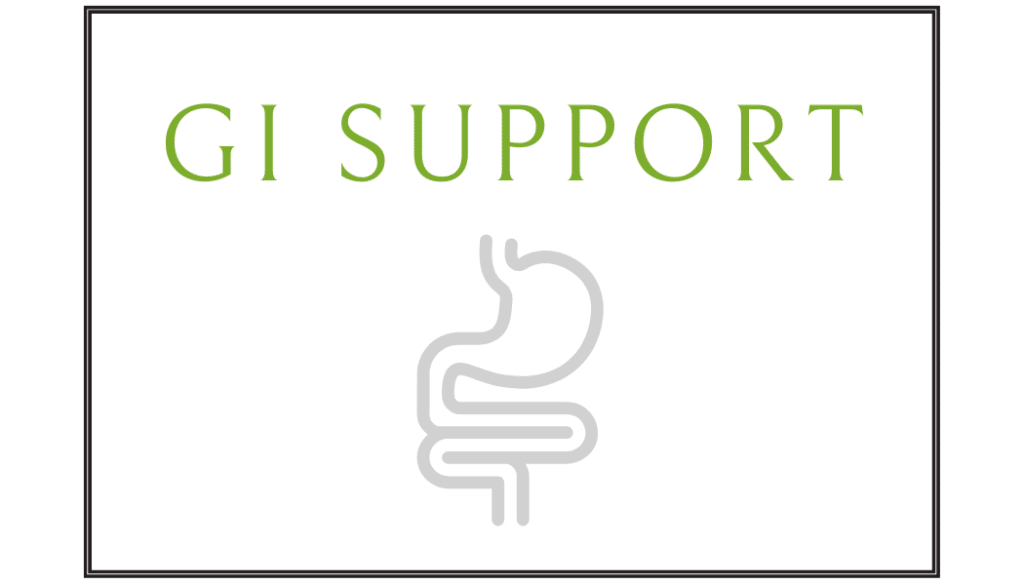For anyone suffering from Irritable Bowel Syndrome (IBS), a low FODMAP diet can help reduce symptoms and improve quality of life. A low FODMAP diet is a a short-term elimination diet that can help identify IBS triggers. However there is often a great deal of confusion about what a low FODMAP diet is, and who should consider one. In this article, we explain all about a low FOMAP diet and who might benefit. Let’s start by answering an important question…
What is a FODMAP?
“FODMAP” is an abbreviation for Fermentable Oligo‐, Di‐ and Mono‐saccharides and Polyols. You can see why we shorten it to FODMAP! These are short-chain carbohydrates and sugar alcohols that are not problematic for most people. However for someone with IBS, they can ferment in the large intestine and produce carbon dioxide, hydrogen, and even methane gas. As a result, the intestine can expand resulting in pain, bloating, gas, and other symptoms.
Types of FODMAPs:
- Fructose: a sugar in many fruits and vegetables.
- Lactose: a sugar in many dairy foods such as yogurt or milk.
- Fructans: like fructose in many vegetables and grains.
- Galactans: primarily in legumes.
- Polyols: sugar alcohols in artificial sweeteners and gum. Ingredient lists may read xylitol, sorbitol, maltitol and mannitol.
What is a low FODMAP diet?
The low FODMAP diet was developed at Monash University in Melbourne, Australia, specifically to help reduce IBS symptoms. At Monash, researchers conducted the original studies that resulted in the concept of FODMAPs, which in turn led to the creation of the low FODMAP diet.
A low FODMAP diet is not intended for long-term use because it is so restrictive. It usually starts with a period of elimination, removing all FODMAPs from the diet for four to eight weeks. This gives the body time to heal from the foods that may be causing issues. After that, each FODMAP is reintroduced back into the diet one at a time. Meanwhile symptoms are carefully monitored. Once specific foods that trigger symptoms are identified, they can be avoided for the long term.
Registered Dietitians (RDs) use a low-FODMAP diet to alleviate a patient’s IBS symptoms such as bloating, gas, diarrhea, cramps, or constipation related to digestion.
Should I consider a low FODMAP diet?
IBS symptoms are the same or similar to symptoms caused by other GI conditions. Step one is working with your doctor to determine whether your symptoms are actually IBS, or something else entirely. Your Primary Care Physician or GI specialist will consider your medical history and order tests to render a diagnosis.
Next, schedule an appointment with a Registered Dietitian (RD) from our team. Your RD can determine whether you might benefit from a Low FODMAP diet. If so, they will provide a concrete plan. They will work with you to eliminate FODMAPs for a set period of time. Your RD will then reintroduce FODMAPs back into your diet in a specific way, to identify food triggers.
Some people might try to go it alone, and put themselves on a Low FODMAP diet without the help of an RD. However this type of diet can be tricky to follow. Your RD has the knowledge and training to ensure that the time you spend on a low FODMAP diet produces actionable data, and leads to the benefits you are seeking.
Why Choose Us
On our team, we have Registered Dietitians who are certified in the use of a Low FODMAP diet by Monash University. They can guide you through the elimination and reintroduction phases, and help you gain control of your IBS symptoms. They also provide ongoing support, advice, and education to help you feel better, and improve your quality of life. Bonus: We accept most major insurance and see patients both in person and virtually.

Click here to learn more about our GI Support Nutrition Counseling Programs.




